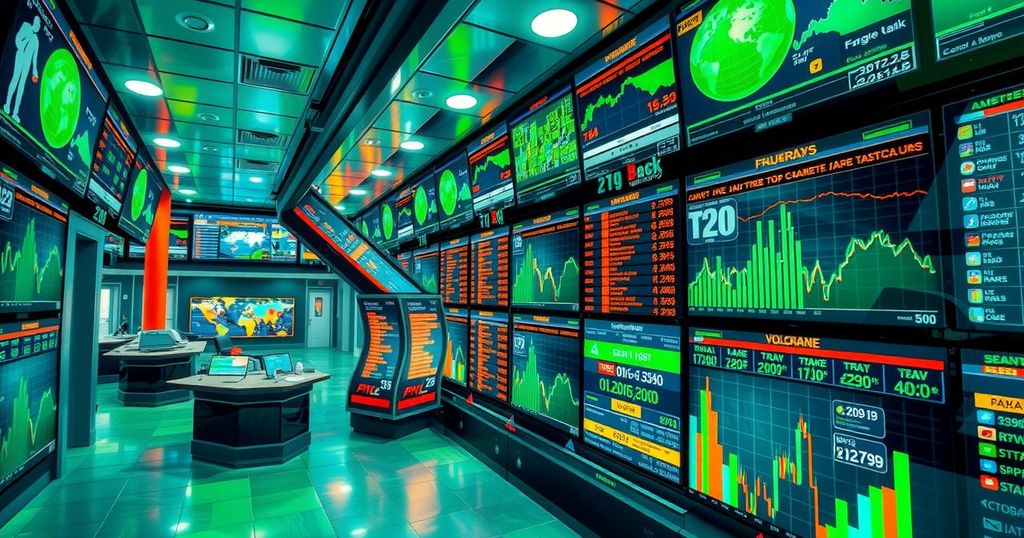Political Cycles and Q3 2025 Market Opportunities: Riding Election-Driven Policy Shifts
- Q3 2025 will be pivotal due to multiple key elections.
- Germany’s elections will significantly influence its Clean Industrial Deal.
- Southeast Asia’s trade dynamics hinge on political outcomes in the Philippines.
- Latin America’s judiciary election could impact mining and infrastructure.
- Ongoing geopolitical tensions pose risks to global markets.
Understanding Political Cycles in Q3 2025 Market
The third quarter of 2025 is gearing up to be crucial, as multiple elections in strategic areas will likely reshape both policy landscapes and market valuations in significant ways. From Germany’s influential industrial sectors to the manufacturing hubs in Southeast Asia, the interaction between political cycles and economic priorities is expected to bring both potential gains and risks. For investors, this means a strong need to navigate these political adjustments with care, identifying sectors poised to benefit from or face challenges due to new governmental policies.
Impact of Germany’s Elections on Clean Industry
In Germany, the parliamentary elections scheduled for February 23, 2025, will be essential in shaping the country’s Clean Industrial Deal. This initiative is crucial for the EU’s broader decarbonization efforts. If a coalition emerges that is supportive of rigorous climate objectives, we could see a surge in investments targeting renewable energy, electric vehicle (EV) production, and green hydrogen infrastructure. However, should a more conservative center-right government take power, emphasis may shift toward fiscal restraint, potentially leading to fluctuations in sectors linked to the energy transition.
Philippines’ Trade Dynamics Amid Elections
Turning our focus towards Southeast Asia, the legislative elections in the Philippines on May 12 could play a key role in how the nation maneuvers through ongoing U.S.-China trade tensions. As issues like tariffs on Philippine exports—particularly steel and semiconductors—remain unresolved, the election outcomes could dictate whether a pro-U.S. administration can expedite trade negotiations. This could bolster growth across technology and logistics sectors. Meanwhile, Indonesia’s political climate—although stable now—will also be of importance to commodity prices, given that it plays a significant role in nickel production, essential for EV battery manufacturing. The performance of the PSEI may hinge greatly on the resolution of these trade challenges and the country’s ability to attract foreign investment.
Legal Reforms and Infrastructure in Latin America
Over in Latin America, particularly Mexico, the unprecedented election of the judiciary on June 1, 2025, has the potential to reshape the country’s legal framework—a factor that could significantly affect sectors like mining, energy, and infrastructure. If the judiciary is seen as more independent, this could lead to faster permitting for large infrastructure projects, offering substantial opportunities for construction and natural resource companies. Brazil’s forthcoming presidential election in 2026 will also weigh heavily on market sentiment through 2025. The actions of the current administration regarding commodities and defense expenditures will be closely monitored, as they directly influence investor perception and market performance.
Geopolitical Risks Affecting Global Markets
However, escalating geopolitical tensions, particularly in the Middle East—consider the ongoing Israel-Iran conflict, alongside fluctuations in energy prices due to Russian export flows—could harm global economic stability. Oil prices, specifically Brent crude, are notoriously sensitive to geopolitical unrest; if disruptions occur, sectors like airlines and utilities might face significant downturns. Additionally, the U.S. debt ceiling, with its ‘X-date’ of August 7, 2025, presents a looming risk for global liquidity that could exacerbate market volatility. Therefore, a rise in oil prices or widening bond spreads would likely elevate market caution, creating demand for defensive assets such as gold or utility stocks.
Key Takeaways for Investors
As we look ahead toward Q3 2025, it is clear that navigating through these election-driven policy shifts will require investors to remain vigilant and responsive. Key highlights to watch include Germany’s approach to climate initiatives, the Philippines’ response to trade challenges, and the impact of legal reforms on Latin American infrastructure. Although there are promising opportunities in areas such as green energy, technology, and infrastructure, the potential for geopolitical risks necessitates a diversified strategy to mitigate possible downturns.
In summary, Q3 2025 will require investors to pay close attention to the election results across key political landscapes and their consequent sectoral impacts. Germany’s focus on climate policy, the Philippines’ trade dynamics, and legal reforms in Latin America will headline market opportunities. As the political environment shifts, sharp insights and adaptable strategies will be essential to capitalize on emerging trends while safeguarding against potential risks.




Post Comment